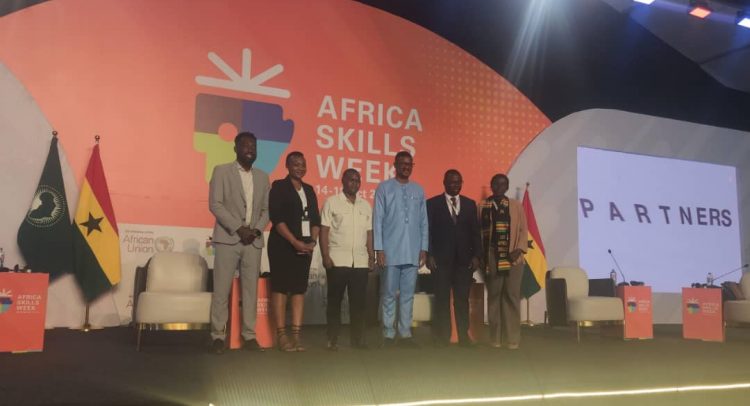The Africa Skills Week Summit has officially commenced in Accra, gathering over 600 delegates from across the continent to discuss skill development and youth empowerment.
The event, themed “Skills and Jobs for the 21st Century: Quality Skills Development for Sustainable Employability in Africa,” runs from October 14 to 18 and is organized by the African Union (AU) in partnership with the Government of Ghana.
It features a Youth Summit and study tour aimed at equipping young Africans with essential skills for economic growth and manufacturing.

This initiative supports the AU’s Agenda 2063 vision, promoting a resilient and transformative educational ecosystem across Africa.
Dr. Fred Kyei Asamoah, Director General of CTVET, highlighted the urgency of skill development as Africa’s working-age population is expected to triple by 2050.
He emphasized the need for strategic interventions to address challenges outlined in the Continental Education Strategy for Africa (CESA) and the UN Sustainable Development Goal 4.
“With 70% of Africa’s population under 30, youth are pivotal to our continent’s future,” Dr. Asamoah stated, calling for an immediate focus on equipping young people with relevant skills.
“So as we come in with the official opening tomorrow, we want the youth to know they are the future of Africa. Most of the youth, somebody who is one year old today 2050, will be 26 years old. So the focus is on the youth and how we can equip them with the skills. Now we all know that we only have a youthful population in Africa, among other continents. But we also know that this number is going to double in the next 26 years. So we in Africa must pay particular attention to stay involved”
Sarjoh Aziz-Kamara, Deputy Minister for Technical and Higher Education in Sierra Leone advocated for a collaborative approach that includes the private sector to enhance both technical skills and leadership capabilities among youth.
He praised Ghana’s partnership with the International Labour Organization as a model for other nations, stressing the need for strong political will to prioritize Technical and Vocational Education and Training (TVET) as a key driver of national development.
He said that by building public-private partnerships, Africa can create ecosystems where young people are empowered with not only technical skills but also leadership and entrepreneurial capabilities.
Mrs. Sophia Ashipla, Head of the Education Division at the African Union Commission, underscored the importance of adapting education systems to meet the evolving demands of the 21st-century workplace.
She called for unlocking the continent’s youthful potential, describing the summit as a call to action for African youth.
The summit aims to develop a strategic plan to empower African youth with the skills necessary to thrive by 2063, turning challenges into opportunities for a prosperous, inclusive, and sustainable future.
BY Daniel Bampoe


